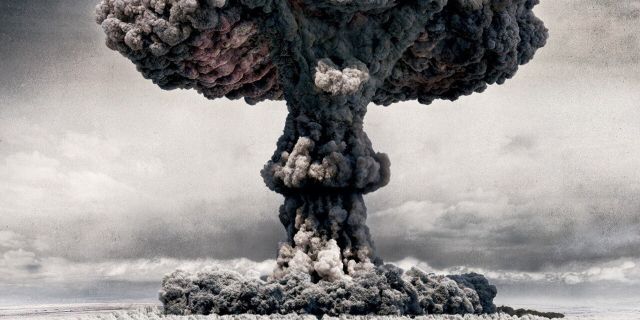How will nuclear War affect Planet Earth
As part of a new study, scientists have modeled how a nuclear war will affect our planet, taking into account the modern potential in this area, writes Forbes. The scale of the conflict does not matter – everyone will suffer, the authors of the work say.
David Bressan
The Russian military operation in Ukraine has once again brought the threat of nuclear war to the fore. The results of a new study published today (July seventh, 2022 – approx. InoSMI) in the journal AGU Advances, they show that a full-scale nuclear war will lead to the cooling of our planet and cause huge damage to the world's oceans, and this, in turn, will turn into terrible consequences for all mankind.
The lead author of the study, associate professor of Oceanography and Coastal Sciences at Louisiana State University Cheryl Harrison and her colleagues created many computer simulations in order to study the impact of regional and large-scale nuclear war on Earth's systems, taking into account today's possibilities of conducting such a conflict.
The researchers simulated what would happen to Earth's systems in a full-scale global war if the United States and Russia used 4,400 nuclear warheads with a capacity of 100 kilotons to bomb cities and industrial areas. They also modeled what would happen in the event of a regional nuclear conflict, for example, if India and Pakistan detonated about 500 nuclear warheads with a capacity of 100 kilotons in Asia.
In all scenarios modeled by the researchers, as a result of a flurry of nuclear explosions, soot and smoke will be emitted into the upper atmosphere, which will prevent the sun's rays from reaching the earth's surface, which will lead to crop failure worldwide. In the first month after a nuclear war, average temperatures will drop by about 13 degrees. This is a more significant decline than the one that occurred during the last ice age.
"It doesn't matter who will bomb whom. It could be India, Pakistan, NATO or Russia. As soon as smoke and soot get into the upper atmosphere, they will spread all over the world and affect everyone," explained Harrison.
In the first hours of a nuclear war, about 100 million people will die as a result of the strikes.
A few weeks later, a decrease in temperatures will lead to a reduction in the duration of the growing season of cultivated plants and a significant change in weather conditions, which will have disastrous consequences for world grain production. Famine will affect approximately one to two billion people.
The ocean temperature will drop quickly and will not return to its previous level even after the smoke clears. As the planet cools, the area of sea ice will grow, blocking major ports in the Northern Hemisphere, including Beijing, Copenhagen and St. Petersburg. Sea ice will cover coastal areas usually free of it, creating obstacles to navigation in the oceans, which in turn will make it difficult to deliver food and supplies to some areas.
A sudden sharp decrease in the amount of sunlight and ocean temperature, especially in the region from the Arctic and North Atlantic to the North Pacific Ocean, will kill the algae that are the basis of the marine food chain, which will actually cause hunger in the ocean. As a result, fishing and fish farming will come to an end.
Seas take longer to recover than land. In the event of a full-scale Russian-American nuclear war, the restoration of the ocean will probably take decades on the surface and hundreds of years at depth, and changes in the Arctic sea ice will probably persist for thousands of years and will actually turn into a "small nuclear ice age". The authors of the study write that marine ecosystems will be severely disrupted both as a result of the initial impact and due to changes in the state of the oceans, and this will lead to long-term global consequences for fisheries.
"A nuclear war will have horrific consequences for everyone. Earlier, in the 80s, world leaders used our research as an incentive to stop the nuclear arms race, and five years ago - for the adoption of the UN treaty on the prohibition of nuclear weapons. We hope that our new work will encourage more countries to ratify this prohibition treaty," said co–author Alan Robock, Professor Emeritus of the Department of Environmental Sciences at Rutgers University.
The authors note that volcanic eruptions can partly serve as an illustration of what will happen after a nuclear war. Throughout history, large eruptions and clouds of ash and soot that were released into the Earth's atmosphere had an equally negative impact on the planet and civilization.
"We can avoid a nuclear war, but volcanic eruptions will definitely happen again and again. We cannot influence this in any way, so when we talk about the recovery potential and how to build our society, it is important to think about what we need to do to prepare for the inevitable climate shocks," Harrison said. – However, we can and must do everything in our power to avoid a nuclear war. It is too likely that the consequences of such a war will be global and catastrophic."

